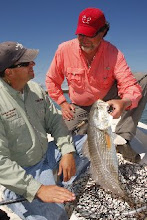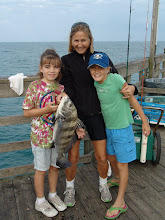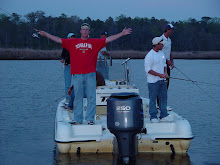CFRG POSITION ON SHRIMP FMP SENT TO DMF/MFC
The Coastal Fisheries Reform Group (CFRG) is a coalition of recreational coastal fishermen, who support sound management of our marine fisheries based upon the best available science. We represent many thousands of fishermen from across the state who fish in our coastal waters. We have had 122,533 visits to our blog site (
http://cfrgnc.blogspot.com/) where we have discussed coastal fisheries issues since 2009.
In the role as a voice for the average salt water fisherman, we submit the following comments on the proposed Shrimp FMP revision that the Marine Fisheries Commission will consider at their November meeting. First and foremost, the by-catch of juvenile finfish taken in otter trawls used to harvest shrimp in North Carolina inshore waters is excessive and potentially harmful to the life cycles of some of the important finfish that are being killed and discarded. Recent studies by DMF personnel revealed alarming numbers of juvenile finfish in the by-catch of otter trawls with estimates in the range of a combined 300,000,000 young spot, croaker, and weakfish taken each year.
In our opinion, this by-catch is excessive given the relative small annual harvest of shrimp (6 million pounds valued at about $11,000,000.) Economic studies have shown the value of recreational fisheries to be many times greater than the commercial harvest. In the shrimp trawl fishery, you have the harvest of one commercial species (shrimp) cutting into the productivity of three species of fin fish (spot, croaker, and weakfish) whose recreational value is much greater than the product taken. This equation cannot be balanced in any way that you try to solve it.
While many options exist, some of which are described in the current Draft Shrimp FMP revision, to reduce the trawling by-catch without compromising the annual harvest of shrimp in North Carolina, the proposal recommends that none of them be implemented as management measures in the next five years. Instead, the recommendation is to adopt a status quo position with regard to by-catch. This “No Action” is unacceptable given the severity of the problem and the overwhelming evidence that otter trawling for shrimp is inherently destructive to the habitat and to a major portion of the finfish resource.
We think the preferred management action should be to move trawls out of inshore waters altogether and as soon as possible due to the damage they do to the bottom, the sedimentation they cause, and the destruction of way too many juvenile finfish. Moving trawlers three miles offshore has been the solution in most Atlantic and Gulf States.
The Shrimp FMP should be amended (not revised) to include goals, timetables and management measures that will achieve significant by catch reduction within the next five year period. We quote here from the proposed revision:
“As perhaps the prime example of the new policy positions, the re-authorized Magnuson-Stevens Fishery Conservation and Management Act (MSFCMA) contains a National Standard (#9) requiring bycatch minimization (USDOC 1996). National Standard 9 states: “Conservation and management measures shall, to the extent practicable, (A) minimize bycatch and (B) to the extent bycatch cannot be avoided, minimize the mortality of such bycatch." Additionally, in 1991 the MFC adopted a policy directing the DMF to establish the goal of reducing bycatch losses to the absolute minimum and to consciously incorporate that goal into all of its, management considerations (Murrary et al. 1991).”
It is time to follow the national and state policies pointing to the importance of reducing by-catch. We can start with an amendment to the Shrimp FMP that does this in an effective
way.
One additional factor that needs to be incorporated into the Shrimp FMP for the next five years is the continuation of the requirement that Turtle Excluding Devices be used in shrimp trawls. This requirement should be expanded to all types of trawls operating in waters where endangered and threatened sea turtles are found. In areas where, and times when, sea turtles are especially abundant, tow times for shrimp trawling should be reduced to a period that will prevent mortality of any sea turtle that may be engaged.
Thank you for the opportunity to comment on the Shrimp FMP. Please consider and share our points as you decide how to proceed in the important process of reviewing the Plan.
Trawler By Catch

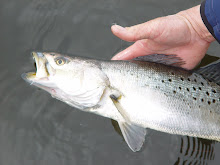



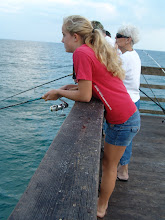

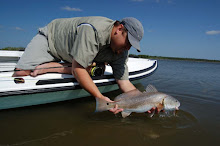.jpg)


